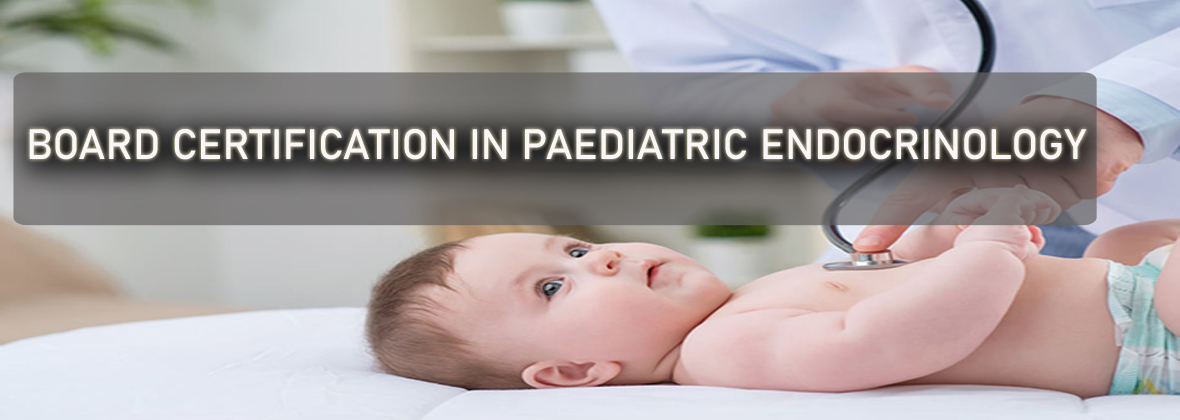
![]()
The endocrine system plays a major role in the growth and development of a child. Endocrine disorders with long lasting effects on the physical, psychological and intellectual development such as congenital hypothyroidism and disorders of sex development present very early in life and continue through to adulthood. Meticulous attention to details is imperative in managing children with endocrine disorders as the outcome is excellent if the initial assessment and management is properly carried out.
Although the incidence of these conditions in Sri Lankan children is not known, these problems exist throughout the country.
Growth and development is peculiar to children, and as deranged hormone secretion as well as the medications used, affect both these aspects, children with endocrine disorders should be managed by Paediatricians specialized in endocrinology.
![]()
It is envisaged that at the end of the training period the trainee would be a fully fledged Paediatric Endocrinologist who would serve the children with endocrine problems with competence, compassion and care and would develop the endocrine services in Sri Lanka to be on par with centres of excellence elsewhere in the world.
Learning objectives and level of competences to be achieved are considered under “core knowledge and skills to be developed”.
- To gain knowledge on:
- Aspects in relation to all endocrine organs in health and disease.
- Disorders of growth
- Disorders of puberty
- Disorders of the thyroid gland
- Disorders of the adrenal gland
- Disorders of sex development (DSD)
- Disorders of parathyroid glands and calcium metabolism
- Disorders of the hypothalamus and pituitary gland
- Comprehensive management and follow up of children with Type 1 diabetes mellitus
- Comprehensive management and follow up of childhood obesity and related conditions.
- Investigation of persistent hypoglycaemia
- Investigation of a child with ‘endocrine hypertension’
- Management of a child with Multiple Endocrine Neoplasia
- Adolescent with endocrine disorders associated with a chronic illness – eg: Thalassaemia
- Management of a newborn with endocrine problems
- Surgical endocrinology
- Late effects of cancer therapy (chemo and radiotherapy)
- Pharmacology
- To develop
- Clinical skills pertaining to all endocrine disorders affecting children.
- Laboratory skills
- Radiological / imaging skills
- Communication skills
- IT skills – to practice evidence based medicine.
- Teaching skills
- Research and clinical audits – presentations and publications.
![]()
- Applicants should have passed the MD Paediatric Examination.
- The candidates should not be already Board Certified in any other medical field and should not be enrolled in a training programme in any other subspecialty.
Please refer to the relevant prospectus for the most up to date information. The prospectus of a particular programme contains official information pertaining to a programme approved by the Board of Management, University Senate and the University Grants Commission